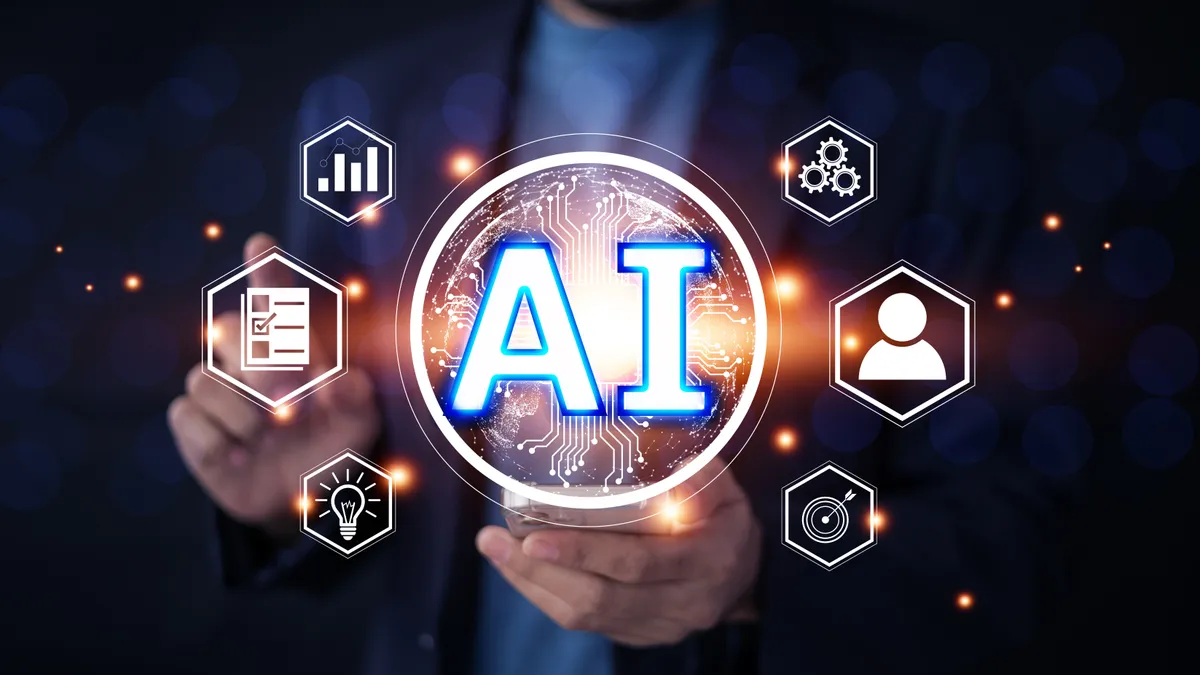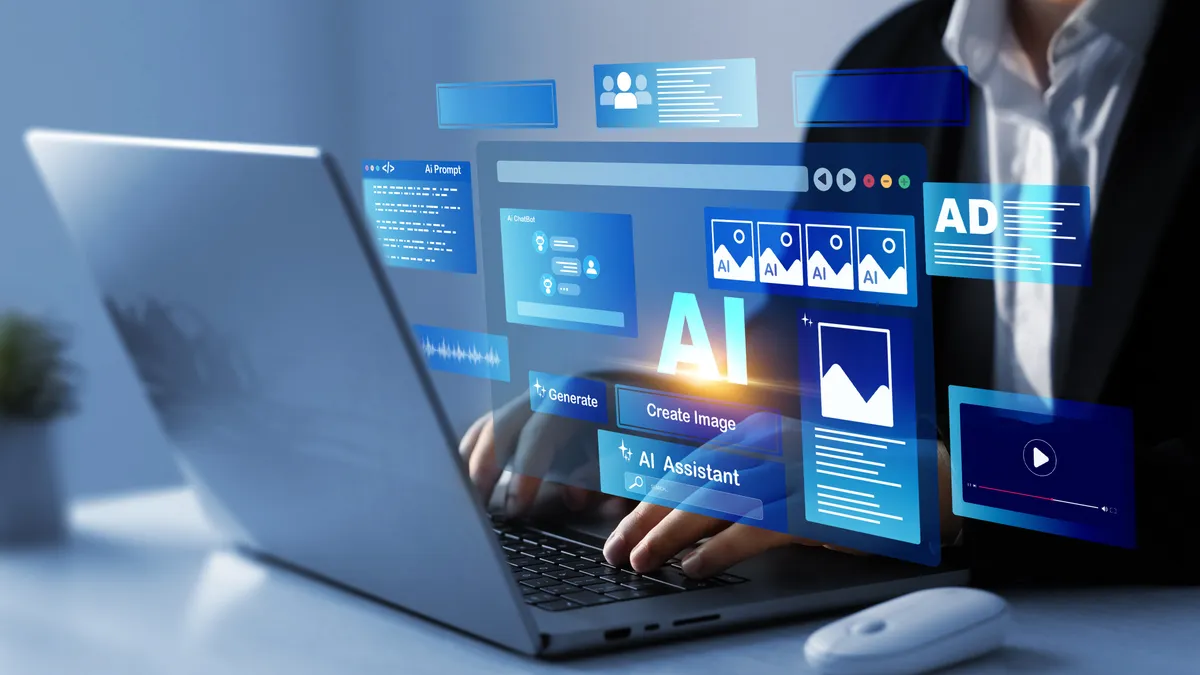Shana Simmons is the chief legal officer at Everlaw, a cloud-based ediscovery platform that unlocks the collaborative power of litigation and investigative teams. Views are the author’s own.
“Hustle harder, hustle smarter,” was 50 Cent’s advice in his 2020 book of the same name.
It was good advice at the time but, as author and New York Times columnist Kevin Roose pointed out at a talk I attended in October 2023, “you can’t out-hustle AI — it’s a machine.” I couldn’t agree more.
A year after ChatGPT and generative AI technology have threatened to upend our livelihood with their infinite hustle, I predict that in 2024, we in the legal profession will get reacquainted with the X factor that truly determines success: we will lean into our humanity.
As a chief legal officer (CLO), here’s my perspective on four ways I see that prediction unfolding.
1. In-house counsel will vault up the value chain
CLOs are under pressure to drive business, mitigate risk, control costs and protect data.
In 2024, GenAI tools will help CLOs and internal teams tap into their humanity to drive business in ways that were never before possible, vaulting our status up the corporate value chain.

GenAI, particularly when integrated into enterprise legal tech systems, will help in-house teams automate many of the mundane activities that bog us down in the daily grind, creating a massive opportunity to be the change we seek.
GenAI is turbo charging key in-house systems such as contract management and ediscovery, slashing the time (and money) spent on these core activities. The rigor and consistency that GenAI can bring to these tasks also de-risks them.
By automating and streamlining tedious tasks, our most precious resource, mind space, will be freed up to focus on using GenAI to drive the business forward. And we will do so in a collaborative way that delivers the best outcomes.
As in-house counsel, our connection with the chief information officer, the IT landscape, corporate policies and the entire C-suite means we already understand best how tech plays out across our organization.
We can learn from the broader business as all of our internal departments use GenAI, and we can monitor how they conduct the change management needed for successful digital transformation.
We can layer these learnings on top of our own department’s growing use of GenAI, developing more nuanced strategies on how to move the business forward. This human-centric, converged approach to harnessing new technology is what truly makes 2024 in-house counsel’s time to shine.
2. GenAI wizardry will magically accelerate Gen Z lawyers’ careers
I believe that today’s young lawyers needn’t fear losing their jobs to GenAI. Instead, they can become the wizards of this new technology, accelerating their path to partner.
Here’s why: Any Gen Z lawyer today is a digital native, someone who is extremely fluent in tech because they’ve been using it their entire lives. (It’s the same reason why teens seem to be instinctively facile with their smartphones, and can magically solve any tech problem a befuddled parent may have.)
Today’s associates and new law school grads will be GenAI natives, “growing up” for their entire professional lives in legal environments where ChatGPT and other LLM tools are in constant use.
Gen Z associates’ natural affinity for new tech makes them prime candidates to master GenAI, and be their firm’s go-to resource as they go beyond being prompt engineers to, most crucially, acquiring instinctive skills on how to strategically apply GenAI to solve legal problems.
The shift has already started. GenAI is assisting with tasks such as writing foundational legal documents and performing complex ediscovery, shifting associates’ grinding workloads from the more monotonous to the more interesting.
Instead of sifting through millions of documents, for example, associates are able to transition some of the recouped hours to more client-facing work; beyond hard skills, lawyering is also a relationship business.
In fact, some law firms are already looking to GenAI to accelerate associates’ career paths; as this new tech eliminates swaths of low-level tasks, junior staffers are being given more opportunities to develop and present innovative ideas to clients.
I believe that Gen Z lawyers who can master GenAI can career-hack a significant amount of time off the nine-year average it takes for US lawyers to make partner.
3. Legal ops will get its own Renaissance Tour
In case you haven’t noticed, Beyonce’s Renaissance Tour and film are the season’s cultural phenomenon. I believe that 2024 will see an analogous renaissance for legal ops professionals, who are the linchpin in actually putting GenAI tools to work in both in-house departments and firms.
Legal ops pros will spearhead the transition to GenAI, especially because GenAI tools can speed by at least 50% the creation of core legal work product such as summarizing key documents for clients, and preparing for depositions, mediations, dispositive motions and trials.
This dovetails with my first prediction, that efficiency gains will enable in-house legal teams to focus their creativity on the strategic collaboration only lawyers can drive.
In-house legal departments are especially hard-pressed to use GenAI and all available technology to boost efficiencies and increase capacity. ACC’s 2023 survey of CLOs showed that 66% of respondents said they will bring work in house to reduce costs, compared to 59% in 2022.
If in-house departments take in more work and headcount doesn’t grow, we can’t be successful without automating other tasks to free up capacity.
4. Law firms can’t out-hustle AI, either, but they can out-human it
Just as GenAI will shift in-house lawyers’ sweet spots to be more strategic, these tools will free law firms to focus on delivering premium services that clients value highly.
In 2024, firms will be able to leverage GenAI as an automation engine, spending more time developing strategy at face-to-face client meetings, and on more witness interviews, depositions and court appearances.
Patrick Hammon, a partner at the Silicon Valley office of Pillsbury, believes that lawyers will need to double down on the creativity they bring to tasks like preparing for a deposition.
“It could be tempting to use GenAI as a crutch and leave the questions to the LLM tool. That would be a big mistake,” Hammon says. “The lawyers who will see the most upside from the GenAI revolution are the ones who will use it to put themselves into their most creative element. They're going to be able to get paid for premium high-value services because they will now have more space and time to be creative.”
As a chief legal officer and head of an in-house team, I agree that in-house teams will be raising the bar on what they expect from outside counsel.
And I’m also keenly aware that my team will prioritize relationship-building in 2024; although humans can’t out-hustle AI, we can always “out-human” it with our innate creativity and the emotional intelligence we bring to all work relationships.


















